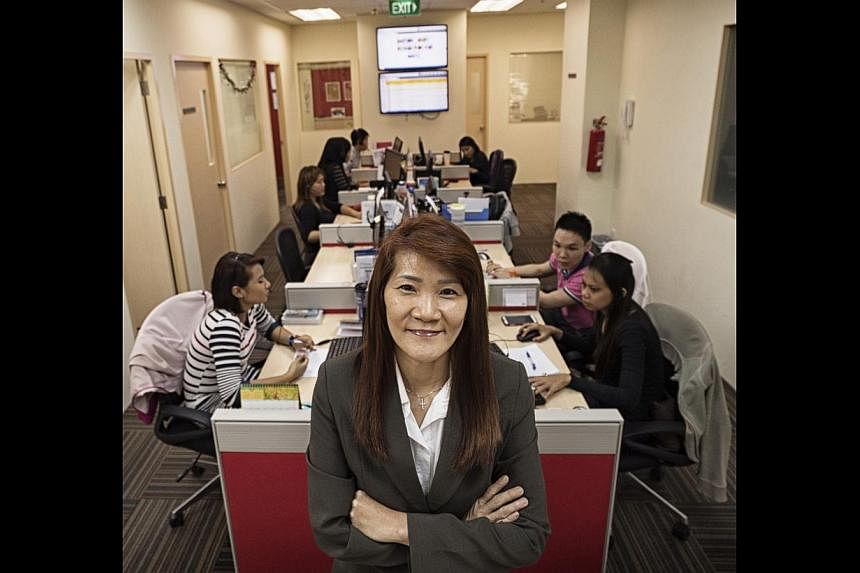Angel Ng, 50, was in and out of jail for drug offences between 1982 and 2008. She now manages three call centres which hire ex-offenders
Being in and out of jail so many times since I was 17 did not scare me off prison life. Being in prison was no big deal; some prisoners wanted to return to prison because they found that better than having to face society.
In 1994, two weeks after I gave birth to my only child, Valerie, I was jailed yet again.
I'm aggressive and argumentative by nature and I always had the spirit of buay sai see (must not die in Hokkien).
But this time, I had post-natal depression, missed my baby and was worried about how my mother, who'd just been told she had cervical cancer, would cope with bringing up Valerie.
I thought: "I've been such a burden to my mother, and I can't change. It's best to end it all."
I took a metal spike from the toilet brush and cut my wrists... The wardens saved me.
But I was still not motivated to change my ways. I just wanted to damage myself completely because I had a deep anger against the world for being unwanted from birth.
While in prison, at the age of 33, I studied for the O levels and scored five straight A1s in subjects like English literature and history.
In 2003, when I was 38 and had started serving my longest-ever prison sentence - 81/2 years, later reduced to six years - I began reading books on religion and philosophy from the prison library.
Age was catching up with me. I thought: "I can't keep living like this."
The following year, I learnt that the prison authorities were starting South-east Asia's first prison call centre, as part of the Yellow Ribbon Project that had just been set up to help ex-offenders find jobs to re-integrate into society.
I wanted to work there because it was a white-collar job for which I had to use only my voice, and not my appearance. So I'd be able to work till I was very old.
In 2006, I got a job there selling health supplements. Within three months, I was the centre's top seller.
I was released from my last prison term on Nov 11, 2008.
A week later, I began working at call centre Connect Centre's headquarters. It's been a big learning experience and it has taken me to new places.
The government could give ex-offenders more help in resolving real-life concerns.
Most newly released ex-offenders have no money, so Connect gives them $10 a day for meals until they get their first month's pay of about $1,000.
They need to stay focused by holding a steady job because that disciplines and stabilises them.
I tell them: "Commit to your job. Don't look for loopholes. After work, spend time with your family.
"Contribute to your family's expenses or buy them small things they like. That's how you regain their trust."
Today my daughter teaches children with severe autism at the Asian Women's Welfare Association. I'm glad she has a caring heart and a sense of responsibility.
This is an excerpt from new book Living The Singapore Story: Celebrating Our 50 Years 1965-2015. The book is now in bookshops at $19.65 (GST included).

